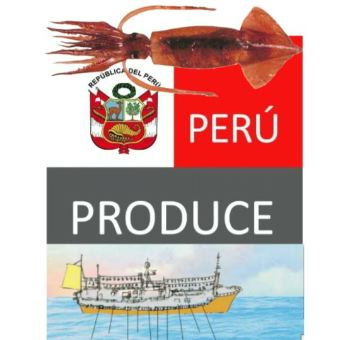|

Photo: Stockfile/FIS
Produce affirms that it will not relax the control of illegal fishing carried out by foreign vessels
 PERU
PERU
Thursday, June 08, 2023, 01:00 (GMT + 9)
The Vice Minister of Fisheries and Aquaculture indicated that her sector encourages the authorities of other countries to adopt mechanisms for full compliance with control and regulation measures for foreign vessels.
Since 2020, our country has stricter regulations to combat illegal, unreported and unregulated fishing, which has limited the access of foreign vessels, mainly Chinese.
As part of her presentation before the "Fisheries" Working Group of the Commission for Production, Micro and Small Enterprises and Cooperatives of the Congress of the Republic, held on June 2 in Sechura (Piura), the Vice Minister of Fisheries and Aquaculture, Desilú León, emphasized that his sector has no intention of making regulatory provisions (control and regulation of foreign-flagged vessels) more flexible, but -on the contrary- to strengthen compliance with the support of all competent authorities.
These statements are in line with Report 00000027-2023-PRODUCE/DSF-PA, which Produce issued on April 11 in response to letters from fishing unions, where it was concluded that "there is no intention to make more flexible" the regulatory provisions of the Supreme Decree 016-2016-PRODUCE, modified by Supreme Decree 016-2020-PRODUCE. However, the visit made by the Chinese ambassador to the Vice Ministry of Fisheries and Aquaculture (on May 24) had generated uncertainty on the part of the fishing unions.
.jpg)
Courtesy from Actualidad Ambiental
Supreme Decree 016-2020-PRODUCE, which amended Supreme Decree 016-2016-PRODUCE, is a regulation that has played a key role in the control of foreign-flagged vessels, especially Chinese vessels that fish for squid near the limit of the 200 miles of our sea, which request and make use of Peruvian ports. For example, according to Ojo Público, after the issuance of the norm, which requires satellite control, there was a significant decrease in the entry of Chinese ships to the ports of Chimbote and Callao: from 104 arrivals registered in 2018, it went to 28 in the 2022.
In a recent opinion column published in the newspaper Expreso, Alfonso Miranda, president of the Fisheries and Aquaculture Committee of the National Society of Industries (SNI), warned that "artisanal fishermen and the various media point out that there is a tenacious pressure from the Chinese diplomatic delegation towards the Government of Peru to repeal or distort this norm, which has been the only one that has been able to stop the invasion of voracious jigging boats on our coast. The owners of these large ships do not want to be controlled nor do they believe in transparency”.
Faced with this, León explained that Supreme Decree 016-2020-PRODUCE, adopted within the framework of the Agreement on Port State Measures (AMERP) and the fight against illegal, unreported and unregulated fishing, seeks to strengthen the monitoring of vessels and combat illegal fishing. “It was established that foreign-flagged fishing vessels that carry out straddling or cross-border activities on the high seas have the satellite monitoring equipment of the Ministry of Production operational and transmit their satellite positioning to the control center. Said system had a deadline for implementation until December 31, 2020,” said the vice minister.
.jpg)
Meeting of the "Fisheries" Working Group of the Commission for Production, Micro and Small Enterprises and Cooperatives of the Congress of the Republic, in Piura.Courtesy of Actualidad Ambiental
For her part, Yesenia Chumbe, SPDA Marine Governance advisor, highlights that Supreme Decree 016-2020-PRODUCE “is an example for other countries, which could also apply it in their national regulations. It is foreign-flagged vessels that must adapt to these regulations that strengthen control actions, and not the other way around. The rules are clear: in Peru, our ports are open to foreign vessels that have nothing to hide."
Regarding the recent statements by the Vice Minister of Fisheries and Aquaculture, Alfonso Miranda pointed out that they seemed positive to him, and at the same time recalled that the fishing sector must be alert since the claims of the Chinese fleet, to use Peruvian ports without control, are not going to cease. “Peru took a long time to impose measures that adequately protect its fishing sovereignty. Almost three years have passed since the issuance of Decree 016-2020-PRODUCE and the foreign jigging fleet has not installed the corresponding satellite devices since they are not interested in being transparent. We cannot take a single step back,” concluded the SNI representative.
Asked about the issue, Bruno Monteferri, director of Marine Governance of the SPDA, mentioned that "in the current context, the official communication given by the Vice Minister of Fisheries and Aquaculture is important. However, although there is a clear message from the fishing sector not to make Supreme Decree 016-PRODUCE-2020 more flexible, it is necessary to be alert and that citizens are duly informed and organized, since pressures can come from other sectors, and it is necessary that the commitment for fishing and our resources be shared and expressed by the different sectors and at the highest level”.
.png)
Courtesy of Actualidad Ambiental
Additional measures
The vice minister also informed the “Fisheries” Working Group that Produce published Ministerial Resolution 164-2023-PRODUCE, which approves conservation and management measures for the sustainable use of the scallop resource on Lobos de Tierra Island. In addition, Desilú León pointed out that her sector will facilitate the formalization process for the benefit of more than 5,000 artisanal fishermen in the country, through Supreme Decree 003-2023-PRODUCE.
The head of the General Directorate of Fisheries, Artisanal and Aquaculture Investment of the National Fund for Fisheries Development (Fondepes), Luis Vilchez; the president of the Board of Directors of the Institute of the Sea of Peru (Imarpe), Jorge Paz; Produce's Director General of Artisanal Fishing, Ricardo Contreras; the head of the General Directorate of Captaincies and Coast Guards (Dicapi), Vice Admiral AP Cesar Colunge; among other officials.
Source: Actualidad ambiental
Related news:

.jpg)
.jpg)
[email protected]
www.seafood.media
|



